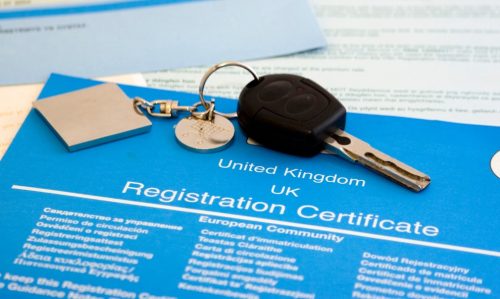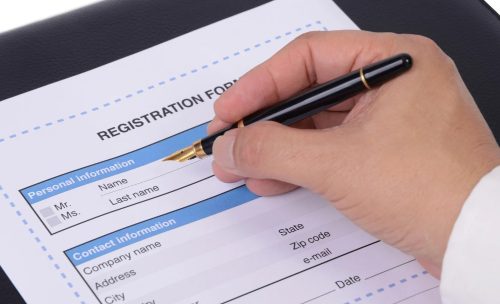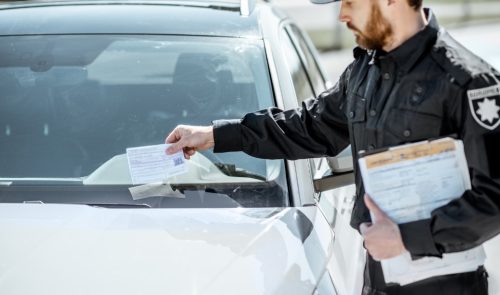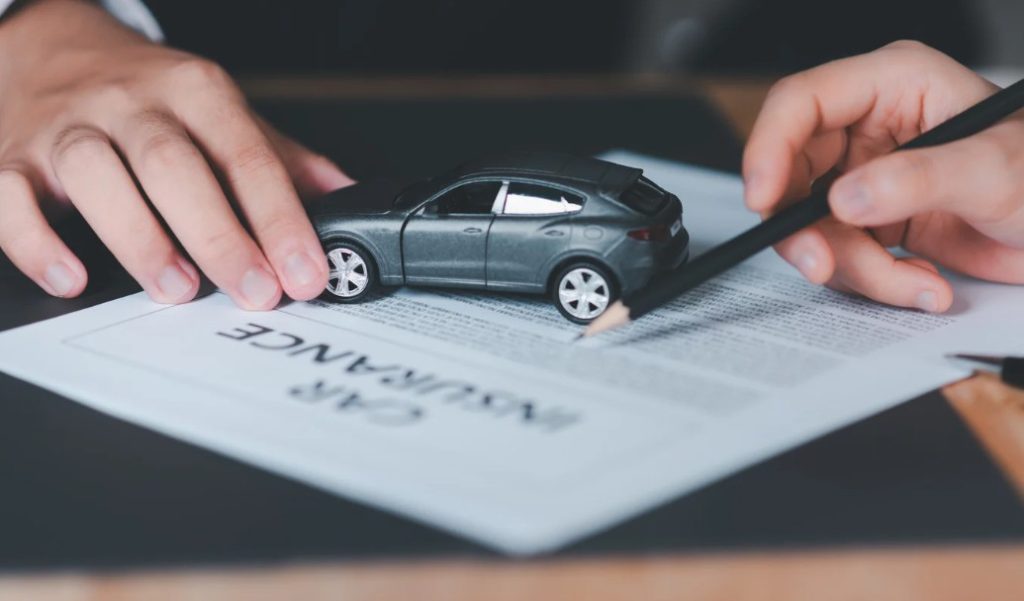Table of Contents
The Vehicle Registration Certificate, also known as the V5C or logbook, is an essential document for every vehicle owner in the UK.
It serves as proof of the vehicle’s registration and contains vital details such as the registered keeper, address, and specific information about the vehicle.
Keeping this document updated is not just a matter of good record-keeping; it is a legal obligation that protects you from fines, miscommunication, and potential complications in case of accidents or selling the vehicle.
If you are wondering when should you update your vehicle registration certificate, this guide will explore its importance, the situations that necessitate updates, and the steps to ensure your details remain accurate and compliant with UK law.
What Is a Vehicle Registration Certificate (V5C)?

The Vehicle Registration Certificate, commonly called the V5C or logbook, is a document issued by the Driver and Vehicle Licensing Agency (DVLA) in the UK.
It provides proof of the vehicle’s registration and identifies the registered keeper. This certificate contains essential information, including:
- The name and address of the registered keeper.
- Vehicle details such as make, model, and colour.
- Unique identification numbers like the Vehicle Identification Number (VIN).
- Information on when the vehicle was first registered.
The V5C is not proof of ownership but serves as an official record of who is responsible for the vehicle. This document must be kept safe and up to date to avoid legal issues and facilitate smooth transactions when selling, transferring, or updating vehicle details.
Whether you are a new vehicle owner or a seasoned driver, understanding the importance of the V5C ensures that you comply with UK regulations.
Why Do You Need a Vehicle Registration Certificate?
The V5C, or Vehicle Registration Certificate, is an essential document for vehicle owners in the UK. It serves multiple purposes and plays a vital role in ensuring legal compliance and smooth vehicle transactions.
- Legal Requirement: The V5C acts as a record of the vehicle’s registration, which is required by law. Without it, proving the vehicle’s registered status can become problematic during routine checks or legal procedures.
- Official Notifications: The document ensures the registered keeper receives important communications from the DVLA, such as recalls, fines, or updates.
- Facilitates Ownership Transfers: The V5C simplifies selling or transferring a vehicle by providing all the necessary details to complete the legal process.
For buyers, the V5C serves as proof that the vehicle is registered, reducing the risk of fraud or complications. It also ensures accountability, as parking violations, speeding tickets, and other legal infractions are linked to the correct individual.
By keeping your V5C updated, you safeguard yourself from fines, disputes, and administrative issues while ensuring your vehicle details remain accurate.
Why Is It Important to Update Your Vehicle Registration Certificate?

Updating your Vehicle Registration Certificate (V5C) is essential to avoid legal issues and maintain accurate communication with the DVLA. An outdated V5C can lead to severe consequences, such as fines or penalties.
For example, if you move to a new address but fail to update your logbook, important correspondence like tax reminders or fines will be sent to your old address, potentially resulting in missed payments or legal action.
Key Reasons to Keep Your V5C Updated
- Avoid Fines and Penalties: Failing to update changes like your address can lead to legal complications.
- Accurate Vehicle Details: Updates for changes like colour or engine modifications ensure correct records and avoid issues during MOT tests or sales.
- Theft or Accident Identification: Accurate information helps identify your vehicle in theft or accident cases.
Moreover, an updated V5C ensures you stay informed about your vehicle’s status. Whether relocating, making modifications, or transferring ownership, keeping your logbook current is a legal responsibility that prevents unnecessary fines and complications.
When Should You Update Your Vehicle Registration Certificate in UK?
Keeping your Vehicle Registration Certificate (V5C) up to date is a legal obligation in the UK, ensuring accurate records and preventing fines or disputes. Here are the situations when you must update your V5C:
Change of address
If you move to a new home, whether permanently or temporarily, you are required to update your V5C to ensure important correspondence, like tax reminders and penalty notices, reaches you promptly without any delays.
Buying or selling a vehicle
When transferring ownership of a vehicle, it is essential to update the V5C so that it accurately reflects the new registered keeper, protecting you from being held liable for any fines or offences committed by the new owner.
Changes to your vehicle’s details
Updates are mandatory if there are any modifications to your vehicle, including:
- A change in the vehicle’s colour, which must be reported to avoid discrepancies.
- Alterations to the engine type, ensuring accurate records with the DVLA.
- Other significant modifications, such as body changes or structural updates.
Change of name:
If your name changes due to marriage, divorce, or other reasons, it is important to update your V5C to reflect the correct information.
By keeping your V5C accurate and updated, you can comply with UK law and avoid unnecessary issues in the future.
What Should You Do If Your Vehicle Details Have Changed?

If any details about your vehicle have changed, such as its colour, engine, or bodywork, it is crucial to update your V5C promptly. Start by filling out the relevant sections in your current logbook.
For instance, if you’ve changed your vehicle’s colour, there is a specific section in the V5C for recording this information.
Once completed, send the updated V5C to the DVLA at the address provided on the document. Ensure that you include any supporting documents if required, such as receipts for modifications. The DVLA will then process your update and send you a new V5C with the revised details.
Failing to update your vehicle details could lead to legal consequences, such as fines or complications during an MOT.
Accurate information is essential for maintaining compliance and ensuring that your vehicle records align with its current condition.
How to Update Your Vehicle Registration Certificate?
Updating your V5C is a straightforward process that ensures your vehicle records remain accurate and compliant with UK law.
You can update your V5C either online or by post, depending on your preference and the type of change.
Online Updates
For a fast and convenient method, visit the official DVLA website and follow the instructions for specific updates, such as a change of address or vehicle details. Online updates are often processed within a few days, making this the quickest option.
Updating by Post
To update your V5C by post, follow these steps:
- For new-style logbooks (with multi-coloured numbered blocks on the front cover): Fill in Section 1 for your changes.
- For older-style logbooks: Use Section 7 for updates.
- If the change you need is not listed in Section 1 or 7, include your details in the ‘Vehicle Details’ section and attach a letter explaining the change.
Send the completed V5C along with any necessary evidence to the DVLA at the appropriate address:
- DVLA, Swansea, SA99 1DZ: For changes to engine size (cc), fuel type, weight of a goods vehicle, or the number of seats on a bus.
- DVLA, Swansea, SA99 1BA: For all other changes.
What Happens Next
Once the DVLA receives your application, they will:
- Confirm the change or inform you if an inspection is required.
- Notify you if the update results in a higher vehicle tax.
It typically takes 2 to 4 weeks to receive your updated V5C by post. If you haven’t received it after 4 weeks, contact the DVLA.
If 6 weeks have passed without notification, you will need to apply for a replacement V5C, which costs £25.
Keeping your V5C up to date is not only a legal obligation but also protects you from potential fines or administrative issues. Act promptly to ensure your vehicle details remain accurate.
What Documents Are Required to Update a Vehicle Registration Certificate?

To update your V5C, you will need the following documents:
- The current V5C (logbook).
- Proof of address if you are changing your address.
- Supporting documents for vehicle modifications, such as receipts or certificates.
- Proof of identity in certain cases, such as a name change.
These documents ensure that the DVLA can accurately process your request. For changes like vehicle modifications or colour updates, including receipts or certifications, it helps confirm the alterations. Keep these documents ready to streamline the process and ensure your records remain compliant.
Evidence to Provide for Specific Changes
Your V5C update may be rejected if you do not provide the required evidence for the following changes:
Change of engine number or cylinder capacity (cc)
- A receipt for the replacement engine, including the engine number and cylinder capacity.
- Written evidence from the vehicle manufacturer.
- An inspection report provided for insurance purposes.
- Written confirmation on headed paper from a garage, if the change occurred before you purchased the vehicle.
Change of fuel type
- Confirmation on headed paper from the garage that converted your existing engine.
- A receipt as confirmation if a new engine was fitted.
Change of weight of a larger vehicle
- A plating certificate.
- A design weight certificate.
Change of body type to motor caravan
- Check specific evidence requirements for converting a van to a campervan or motor caravan.
Having these documents and evidence ready ensures your V5C update is processed smoothly and remains compliant with DVLA regulations.
Are There Any Fees for Updating Your Vehicle Registration Certificate?
In most cases, updating your Vehicle Registration Certificate (V5C) is free. Standard updates, such as changes to your address, vehicle details, or registered keeper, incur no cost.
However, if you lose or damage your V5C, you will need to pay a replacement fee. The current charge for a replacement logbook is £25, as set by the Driver and Vehicle Licensing Agency (DVLA).
It’s crucial to handle your V5C carefully to avoid these unnecessary costs. Keeping your logbook in a secure location helps prevent loss or damage.
To stay informed, always check the DVLA’s official website for the latest details on fees or any changes to the replacement process. Knowing the costs and procedures ensures you are prepared and compliant with legal requirements.
What Happens If You Fail to Update Your Vehicle Registration Certificate?

Failing to update your Vehicle Registration Certificate (V5C) can result in severe consequences. One of the most serious is a fine of up to £1,000.
An outdated V5C means the DVLA cannot send important correspondence, such as tax reminders, recall notices, or penalty fines, to your current address. This could lead to missed payments, invalid road tax, or unresolved safety recalls.
Furthermore, if you sell a vehicle and fail to update its registered keeper, you may remain legally responsible for fines or penalties incurred by the new owner. This can create unnecessary legal and financial burdens.
Keeping your V5C updated ensures that all vehicle-related communications are received promptly and that your records remain accurate.
It helps you stay compliant with UK laws and avoid avoidable penalties. In short, updating your V5C on time protects you from legal and financial complications.
Conclusion
Maintaining an updated Vehicle Registration Certificate is a crucial responsibility for all vehicle owners in the UK.
It ensures compliance with legal requirements, streamlines communication with the DVLA, and protects you from unnecessary fines or complications.
Whether you are changing your address, modifying your vehicle, or transferring ownership, updating your V5C is a simple yet vital task.
By following the steps outlined in this guide, you can keep your records accurate and enjoy peace of mind.
FAQs
Do You Need to Update Your V5C After Selling or Buying a Vehicle?
Yes, updating the V5C is mandatory when transferring vehicle ownership. This ensures the DVLA has accurate ownership records.
Can You Update Your Vehicle Registration Certificate Online?
Yes, the DVLA provides an online service for updating your V5C. It is a fast and convenient process.
How Long Does It Take to Receive an Updated V5C?
Online updates take a few days, while postal updates may take up to four weeks. Processing times depend on the method used.
What Should I Do If I Lose My Vehicle Registration Certificate?
You need to apply for a replacement V5C through the DVLA. This service costs £25.
Can Someone Else Update the V5C on My Behalf?
No, only the registered keeper is authorised to update the V5C. This ensures accuracy and accountability.
Do I Need to Update My Registration Certificate for Temporary Address Changes?
No, the V5C update is required only for permanent address changes. Temporary moves do not necessitate changes.
Is It Mandatory to Update the V5C After Vehicle Repairs?
Yes, the V5C must be updated for significant repairs or modifications. This ensures the vehicle’s details remain accurate.
Can I Still Drive While Waiting for My Updated V5C?
Yes, you can legally drive while waiting for the updated V5C. There are no restrictions during this period.
How Do I Verify That My V5C Has Been Successfully Updated?
You can confirm the update by checking the details on the new V5C. The DVLA will send this to you once it is processed.




